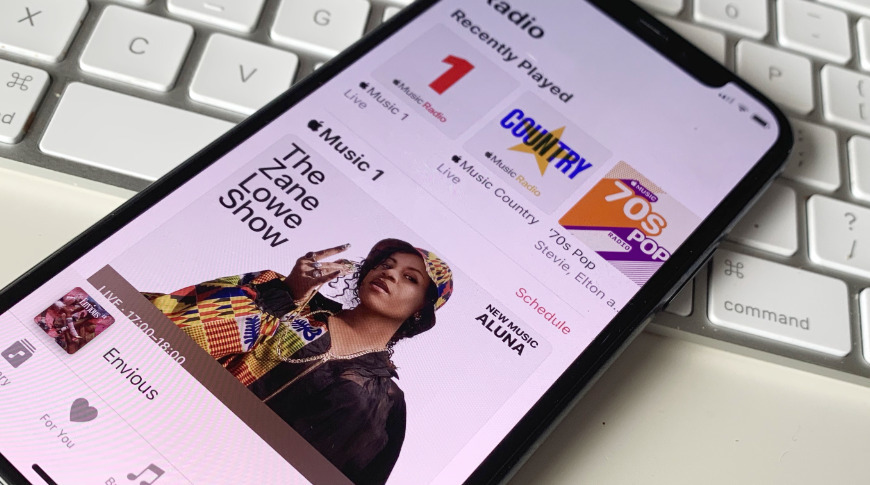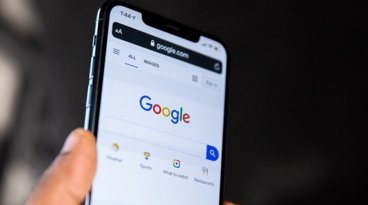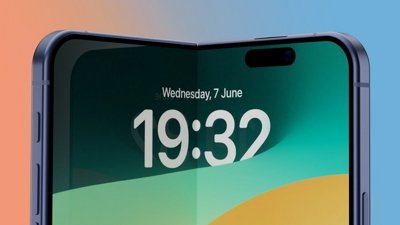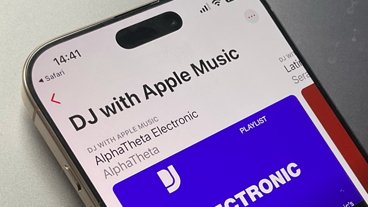The Department of Justice has chosen to keep 80-year-old consent decrees relating to music licensing rules intact, a decision that keeps the way Apple Music secures licenses for songs and tracks the same without any major legal changes.
The examination of whether consent decrees from 1941 apply appropriately to the modern music industry by the Justice Department has been a closely-watched affair, as it had the potential to change how licensing fees are determined. On Friday, the department offered its decision to keep the consent decrees active.
The 80-year-old decrees dictate how the American Society of Composers, Authors, and Publishers (ASCAP) and Broadcast Music Inc. (BMI) performing rights organizations function,specifically regarding music licensing. The two PROs can provide a license to businesses, broadcasters, and streaming services that include the usage rights held by songwriters, composers, and others, for the use of the music.
This also includes music services like Apple Music and Spotify, which pay licensing fees to the PROs to be able to offer music for listening.
Under the rules, the rights are pooled and collectively licensed out to Apple and others, enabling music to be played, to save from having to enter into individual licensing agreements with every songwriter or publisher. The decrees force certain rules on the PROs, such as eliminating exclusive licensing and ensuring that fees are negotiated or set out in a "rate court" by a federal judge.
Variety reports the Justice Department decided to keep the rules as they are, rather than dissolving the consent decrees and forcing all parties to enter potentially costly and lengthy renegotiations. This could potentially have included the PROs raising the cost of licensing fees charged to Apple Music and other firms, or even refuse to license to them at all.
Critics have complained about the decrees for many years, with issues ranging from the age of the decrees not taking into account new technologies like streaming music, to how the decrees prevent innovation by enforcing specific licensing terms on a negotiation.
Furthermore, as the consent decrees only applied to ASCAP and BMI, which holds 90% of the market combined, it doesn't impact smaller PROs that can work without the same restraints. This includes the Pro Music Rights (PMR) organization, which sued Apple in 2019 for allegedly streaming copyrighted music without correct licenses.
The last time music licensing in the United States received a major update was in 2018, with the Music Modernization Act combining multiple acts together and refining the process for courts to determine rates of pay.
"While we were disappointed that no action was taken, we are encouraged to see how the DOJ's approach to these issues has evolved," said ASCAP and BMI CEOs Elizabeth Matthews and Mike O'Neill in a joint statement. "While BMI and ASCAP have long advocated for updating and modernizing our consent decrees, it has become clear over the course of two different reviews by two different DOJ administrations in the past eight years that modifying or terminating our decrees would be extremely challenging."
The National Music Publishers Association head David Israelite was "disappointed" in the decision, as it would have allowed "for freedoms that would have greatly helped songwriters and music publishers realize the true value of their work." He adds he hopes the incoming Biden administration will "take decisive action" to allow songwriters and publishers to directly negotiate with Apple and tech companies, "who continue to pay below market rates."
 Malcolm Owen
Malcolm Owen






-m.jpg)






 Sponsored Content
Sponsored Content

 William Gallagher
William Gallagher



 Christine McKee
Christine McKee
 Wesley Hilliard
Wesley Hilliard





6 Comments
It would be interesting to discover the value of music in a market free of overriding contracts such as exist today. If there were a means for all artists to strike deals directly with streaming services and other distributors, perhaps with some efficient and secure contracting and tracking medium, like a blockchain for example. But regardless of how it’s efficiently implemented to allow artists to bring their music to an open market under terms they and the streamers and other distribution agents mutually agree to, I wonder where the markets would settle out with respect to pricing.
I wonder the same thing about baseball player salaries, etc. there’s a lot of folks who would play baseball merely for the love of the game. And that would put downward pressure on the value of players if the players themselves represented themselves directly, versus through agents and the entire rest of the current structure of baseball.
This is only about the composition, not the recording. BMI, ASCAP, SESAC and the other PRS’s only handle publishing rights.
While something does does need to be done so that publishers and especially the composers get a fairer return, individual negotiations are not the answer. It would throw the industry into chaos and completely screw all but the biggest artists.
One other thing that needs to be done is forcing U.S. over-the-air radio stations to pay for the recordings they use. They pay the PRS’s, but they don’t pay for the actual tracks, the only developed country in the world where this is so.
If Apple is still paying the labels 70% on downloaded tracks, that’s actually quite fair. But all the action today is in streaming.